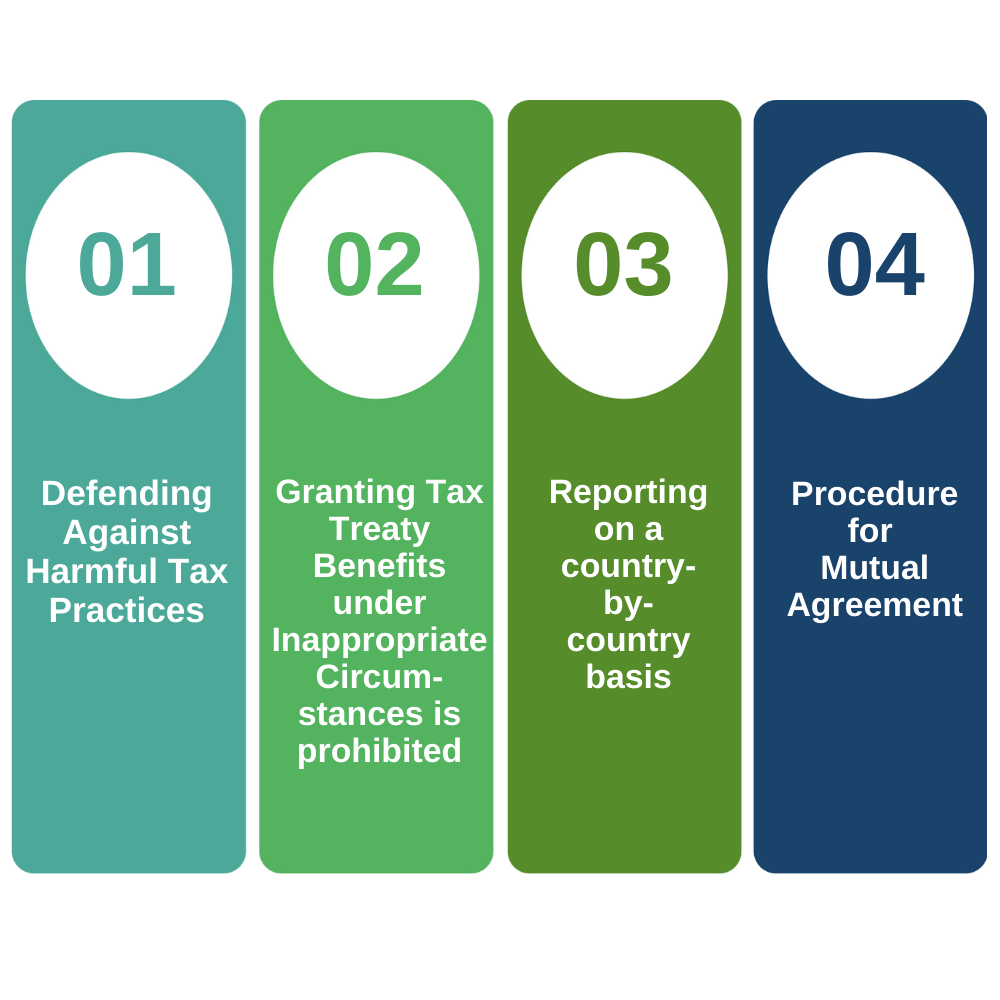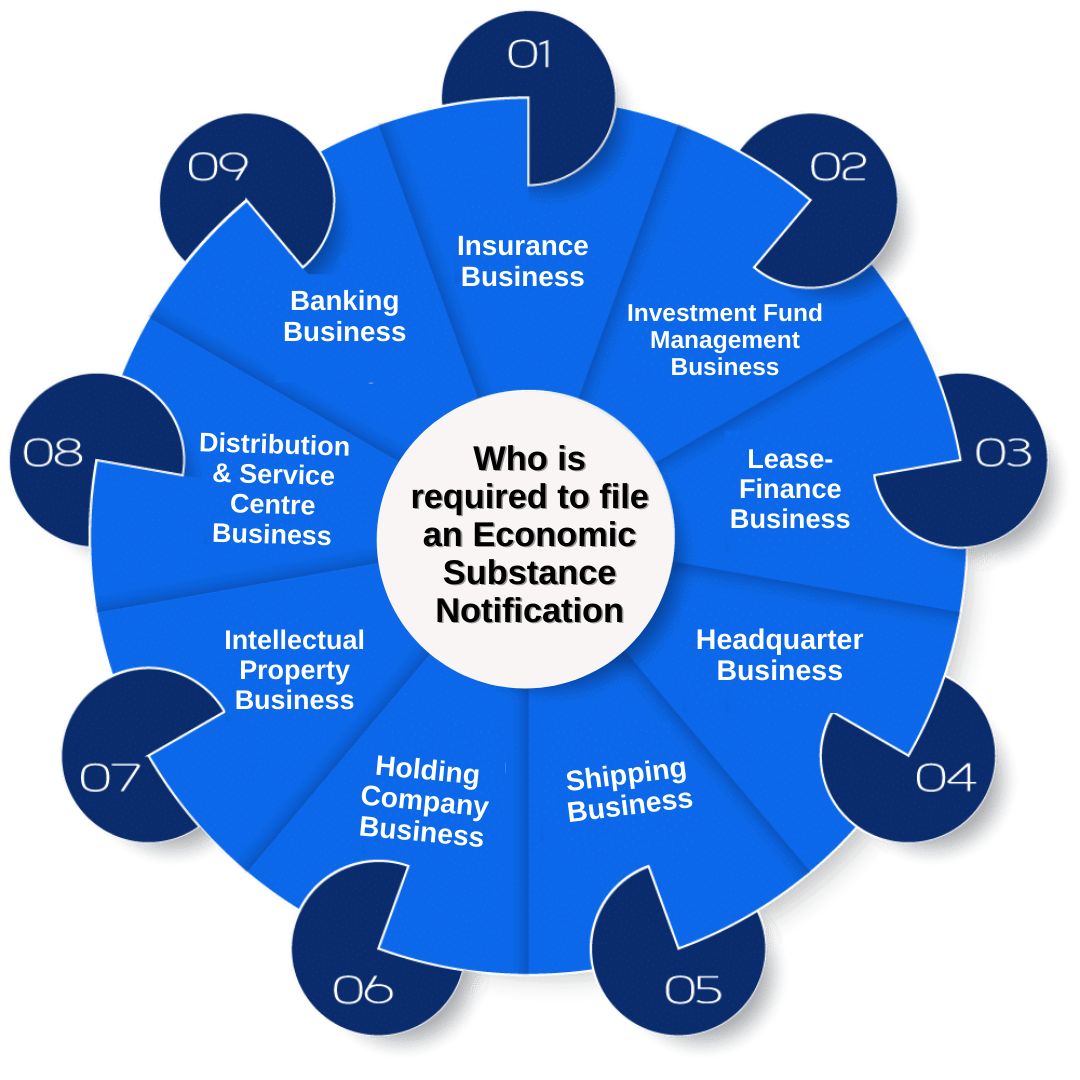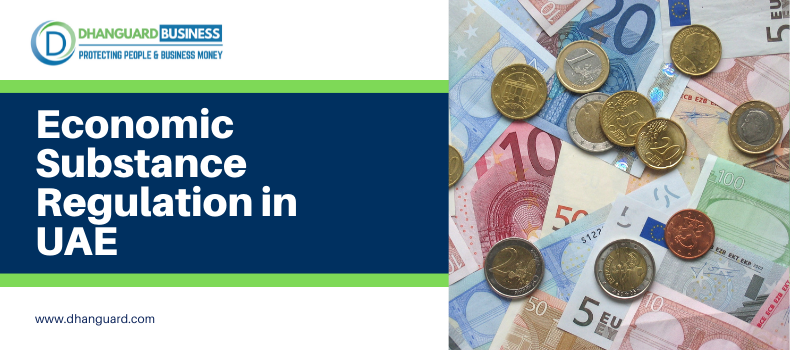The Economic Substance Regulations (ESR) were implemented in countries around the world to ensure that main regulatory organizations in Europe and the United States complied. These regulations are aimed at countries with low tax burdens for enterprises, and they require certain firms engaged in specified sorts of commercial operations to show that they have sufficient economic substance in that jurisdiction.
All economic actions carried out by legal entities in the UAE, including corporations, branches and subsidiaries, as well as those situated in any of the UAE's Freezones, must be recorded, tracked, and reported on a regular basis, according to the legislation.
As part of its efforts to improve openness in cross-border transactions and to limit detrimental tax practices, the European Union's Council has established specific requirements that these jurisdictions must meet. If the European Union (EU) determines that a country lacks meaningful economic substance restrictions, that country will be added to the EU's list of non-cooperative tax jurisdictions, also known as the EU's "tax haven" blacklist.
In order to meet with its obligation as an OECD member (to comply with EU requirements to be removed from the list of non-cooperative tax nations), the United Arab Emirates has developed Economic Substance legislation in collaboration with the Ministry of Finance. The Economic Substance Regulations apply to all Licensees operating within the UAE's authority, including those operating within free zones. Economic Substance Regulations apply to every individual or firm that holds a Trade Licence or certificate of incorporation to conduct any business activity. This is to the benefit of actual investors in the UAE, and a company based in the UAE will have a competitive advantage.
The European Union's examination of the United Arab Emirates' tax framework resulted in the country being designated as a non-cooperative tax jurisdiction and its inclusion on the EU blacklist. The UAE Cabinet established a new ESR on April 30, 2019, in response to the European Union Code of Conduct Group's concerns about the UAE's tax framework and commitment to the Organization for Economic Cooperation and Development's anti-Base Erosion and Profit Shifting (BEPS) Action Plan (OECD).
The United Arab Emirates has joined the BEPS Inclusive Framework (BEPS IF), which now includes over 130 countries and jurisdictions. As a member of the Inclusive Framework, the UAE is committed to implementing the minimal criteria overseen by BEPS IF in order to promote tax-related transparency, a goal that BEPS sets for itself.
BEPS Minimal Standards
The UAE has agreed to comply with a set of four BEPS minimal standards:

- Defending Against Harmful Tax Practices
- Granting Tax Treaty Benefits under Inappropriate Circumstances is prohibited.
- Reporting on a country-by-country basis.
- Procedure for Mutual Agreement.
Businesses must determine whether the newly implemented restrictions apply to them under the UAE's ESR. Businesses that can establish that they are conducting significant economic business activities in the region are considered relevant and must develop strategies to meet the notification and reporting criteria set forth by their regulatory authority.
The UAE Ministry of Finance and various Regulatory Authorities across the UAE have issued an ESR Notification template, which all legal entities must complete to notify and report to their relevant Regulatory Authority whether or not they undertake and generate income from the list of relevant activities, unless the relevant Licensing Authority specifies otherwise.
Who is required to file an Economic Substance Notification?
During the relevant year, a licensee who engages in one or more of the following Relevant and Core Income Generating Activities must file a Notification with the Registration Authority:

- Banking Business
- Insurance Business
- Investment Fund Management Business
- Lease-Finance Business
- Headquarter Business
- Shipping Business
- Holding Company Business
- Intellectual Property Business
- Distribution and Service Centre Business
What Are the Regulations' Economic Substance Compliance Requirements?
The Economic Substance Notification and Return Filing requirements apply to all licensees, whether onshore, offshore, or in a free zone. A company's corporate governance structures and operational models must be reviewed and relevant modifications made where possible in order to demonstrate considerable economic substance. The following are the regulations' compliance criteria for UAE companies:
- The company's core income-generating activities (CIGAs) must be carried out in the UAE.
- In respect to its business activity, the company must be directed and managed within the UAE, with evidence that the company has board meetings and annual general meetings with a quorum of directors and shareholders physically present in the UAE.
- For carrying out important commercial activities in the UAE, the company must have an adequate number of full-time employees, incur operating expenses, and have physical assets.
- The business must be able to show that it has control over the activities that have been outsourced to third parties.
Read More: Becoming a Successful Entrepreneur With No Money and Experience
Notification of Economic Substances and Submission of Tax Returns
Unless otherwise specified by the relevant Licensing Authority, any UAE enterprises (onshore, Offshore, or Free Zone) who possess a license and engage in any of the ‘Relevant Activities' during the year must file a notification using the template established by the relevant Licensing Authority.
The Regulation specifies what must be included in a notification, which includes:
- Whether or not the organization engages in activities that are relevant.
- A description of the company's relevant activities and the types of revenue it generates from those activities.
- If the licensee is a tax resident outside of the UAE, where does he or she come from?
- If the Federal or an Emirate Government, or a UAE Government entity or authority, owns at least 51 percent of the business, directly or indirectly.
- The first financial year that the company is required to report.
A company that engages in relevant operations is required to submit an Economic Substance Report to the Regulatory Authority every year to demonstrate that it meets the economic substance standards.
What is included in the Economic Substance Report?
The Economic Substance Report should include the following information:
- The amount and type of revenue generated by related activity.
- The activities' location, as well as the property and/or equipment utilized to carry them out.
- The amount of personnel, their credentials, and the number of persons in charge of the activities are all factors to consider.
- A statement stating that the company has met the conditions for economic substance.
What Are the Consequences of Failure to Comply?
Failure to comply with the ESR, or the presentation of incomplete or erroneous information, may result in an administrative fine ranging from AED 10,000 to 50,000 for the first fiscal year. Furthermore, your company could face an administrative fine of between AED 50,000 and AED 300,000 for the following fiscal year of non-compliance. It's worth remembering that if your fines aren't paid, the Licensing Authorities may suspend, cancel, or deny your business license renewal.
Amendments to the UAE's Economic Substance Regulations
Following amendments to the UAE's Economic Substance Regulations were enacted
Cabinet Decision No. 57 of 2020.
On the 10th of August 2020, the UAE Cabinet of Ministers released Cabinet Resolution No. 57 of 2020, which repeals and replaces Cabinet Resolution No. 31 of 2019. The new ES Regulations go into effect on January 1, 2019, and make significant modifications to the scope and application of the UAE economic substance regime.
Exempted Licensee
Any of the following entities registered in the UAE and engaged in a Relevant Activity are considered Exempted Licensees:
- a Mutual Fund that invests in other mutual funds.
- an entity that is tax resident in a country other than the United Arab Emirates.
- a company owned entirely by UAE residents that meets the following criteria:
- The entity is not affiliated with an MNE Group.
- the entity's activities are limited to the United Arab Emirates.
- a Licensee that is a subsidiary of a foreign firm whose Relevant Income is taxable in a jurisdiction other than the State.
Natural people, sole proprietors, trusts, and foundations are not included in the definition of licensee. As a result, they are exempt from filing a notification or passing the ES Tests.
How can Dhanguard help?
If you own a business in the UAE and are unsure whether your company engages in a meaningful activity from an economic standpoint, you should seek professional help. Understanding the new legislation and its ramifications is critical to making the best decisions for your company.
Dhanguard can help you determine whether the Economic Substance Regulations apply to your company, provide preliminary assessments of your current compliance obligations, assist with the preparation and filing of the Economic Substance Notification to the required standards, and help you restructure your business operations to pass the economic substance test.
Conclusion
We propose that if you have a UAE business – including free zone and offshore firms – you re-evaluate whether you qualify as a Licensee or an exempted Licensee as soon as feasible. In addition, we strongly advise you to review whether you are doing a Relevant Activity in light of the Updated ESR and new advice. When the new filing portal becomes available, you'll be able to make the necessary compliance filings.
We also propose that you look beyond the first stage notification filing because the end of the 12-month term following a Licensee's 2019 financial year is approaching for many organizations. If your UAE firm qualifies as a Licensee and has generated income from a Relevant Activity during the reporting period, you should begin preparing the paperwork and information needed to demonstrate that the economic substance test is met.
If any holes are discovered, you must devise and implement a mitigation approach to ensure compliance and avoid potential severe consequences.

